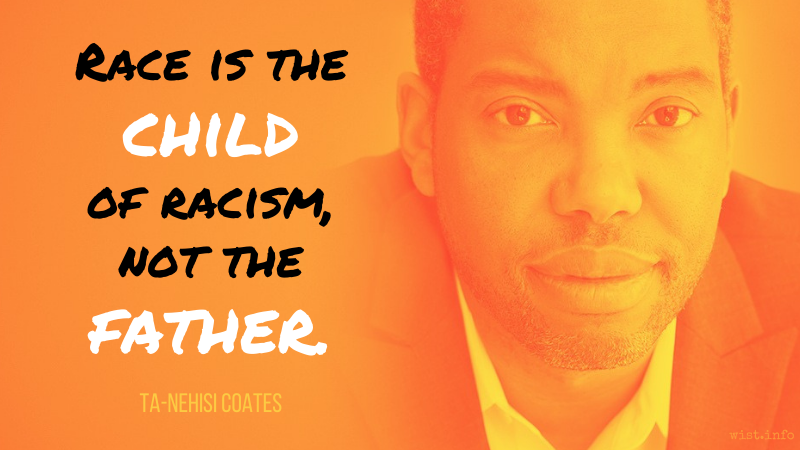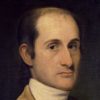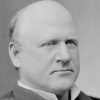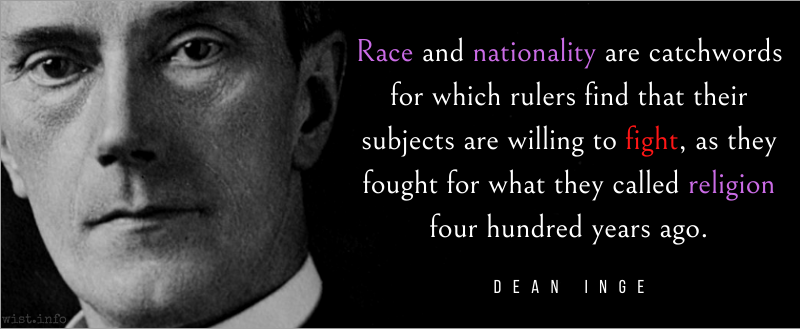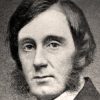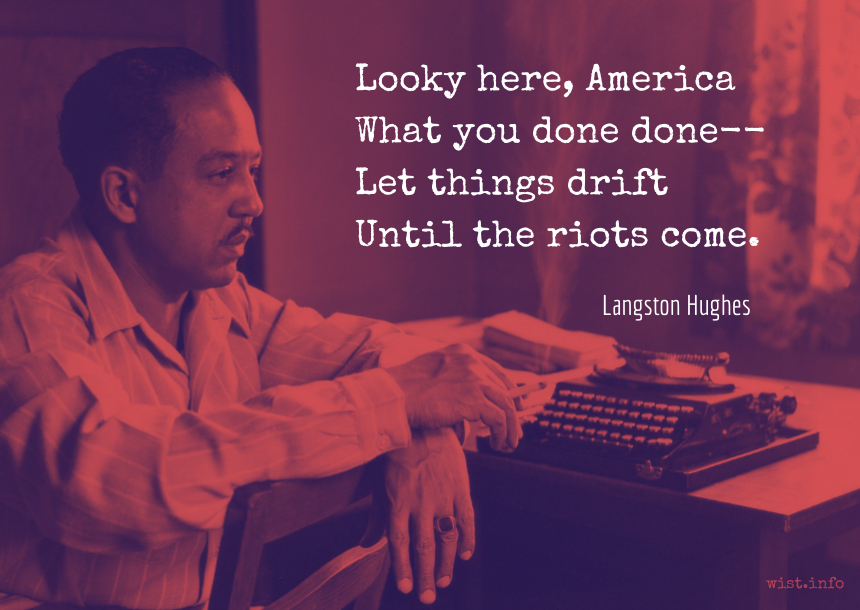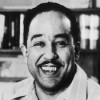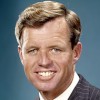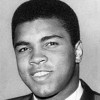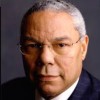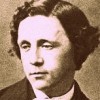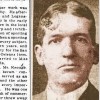And if some god should offer me the privilege of returning to babyhood again, cradle, wailing, and all, I would absolutely refuse. I would have no desire, once my course were run, to be haled back from the race’s end to the starting-line.
[Et si quis deus mihi largiatur ut ex hac aetate repuerascam et in cunis vagiam, valde recusem, nec vero velim quasi decurso spatio ad carceres a calce revocari.]Marcus Tullius Cicero (106-43 BC) Roman orator, statesman, philosopher
De Senectute [Cato Maior; On Old Age], ch. 23 / sec. 83 (23.83) (44 BC) [tr. Copley (1967)]
(Source)
(Source (Latin)). Alternate translations:
And if some god wolde give me puissaunce that I whiche am an olde man myght retourne ayen in to childhode and that I shulde braye and krye in my swathyng cloth and in my cradelle like a childe, I wolde it not but I wolde even refuse it.
[tr. Worcester/Worcester/Scrope (1481)]
I will say more, if God would grant me now in this age to return again to my infancy and to be as young as a child that lieth crying in his cradle, I would refuse and forsake the offer with all my might; neither would I when I have already in a manner run the whole race and own the goal, be again revoked from the end marks to the lists, or place where I took my course at the first setting out. For who would be contented, when he hath gotten the best game, to be forced to race again for the same?
[tr. Newton (1569)]
And if any god would grant me to be now a child in my cradle againe, and to be young, I would refuse it. Neither would I, having runne my full course, be called back again.
[tr. Austin (1648)]
Should some God tell me, that I should be born,
And cry again, his offer I should scorn;
Asham'd when I have ended well my race,
To be led back, to my first starting place.
[tr. Denham (1669)]
And should any of the Gods give me the Liberty of beginning again the Circle of my Years, I should desire to be excused, and be unwilling to begin the Race again, when I am just arrived at the Goal.
[tr. Hemming (1716)]
Or should any heavenly Power grant me the Privilege of turning back, if I pleased, from this Age to Infancy, and to set out again from my Cradle, I would absolutely refuse it; for as I have now got well nigh to the End of my Race, I should be extremely unwilling to be called back, and obliged to start again.
[tr. Logan (1744)]
The sincere truth is, if some divinity would confer upon me a new grant of my life, and replace me once more in the cradle, I would utterly, and without the least hesitation, reject the offer; having well-nigh finished my race, I have no inclination to return to the goal.
[tr. Melmoth (1773)]
But if any god should grant me that I should become a boy again and wail in the cradle, I would strenuously decline it; nor indeed would I wish, as if I had run my course, to be called back from the goal to the starting-post.
[Cornish Bros. ed. (1847)]
For if any god should grant me, that from this period of life I should become a child again and cry in the cradle, I should earnestly refuse it: nor in truth should I like, after having run, as it were, my course, to be called back to the starting-place from the goal.
[tr. Edmonds (1874)]
Indeed, were any god to grant that from my present age I might go back to boyhood, or become a crying child in the cradle, I should steadfastly refuse; nor would I be willing, as from a finished race, to be summoned back from the goal to the starting-point.
[tr. Peabody (1884)]
Nay, if some god should grant me to renew my childhood from my present age and once more to be crying in my cradle, I would firmly refuse; nor should I in truth be willing, after having, as it were, run the full course, to be recalled from the winning-crease to the barriers.
[tr. Shuckburgh (1895)]
Nay, if some God should offer to me now
Once more to be a boy, and shed sad tears
Within my cradle, I'd refuse the gift.
Nor do I wish, my course being fully run,
To leave the winning for the starting post.
[tr. Allison (1916)]
Nay, if some god should give me leave to return to infancy from my old age, to weep once more in my cradle, I should vehemently protest; for, truly, after I have run my race I have no wish to be recalled, as it were, from the goal to the starting-place.
[tr. Falconer (1923)]
Indeed if some god granted me the power to cancel my advanced years and return to boyhood, and wail once more in the cradle, I should firmly refuse. Now that my race is run, I have no desire to be called back from the finish to the starting point!
[tr. Grant (1960; 1971 ed.)]
If I knew that some god had arranged for me to be transformed into an infant bawling in its cradle, I would make a dreadful fuss; once my race was run and I was coming down the final stretch, I would have no desire to be sent all the way back to the starting gate.
[tr. Cobbold (2012)]
And by the same token, if any miracle wouild grant me the chance to be a boy again and to cry in the nursery, I would certainly refuse. There is no way I want to be recalled, as it were, from the finish line to the starting blocks now that I have run the whole race.
[tr. Gerberding (2014)]
And if some god allowed me to get back again
To the cradle, as one of those crying toddlers,
From my ancient age, I’d refuse there and then.
Having run most of my course, I couldn’t face
To be recalled from the finish to the starting place.
[tr. Bozzi (2015)]
Truly, if some god graciously granted that I could put aside my years and start over, crying in my cradle again, I would vehemently refuse. Since I have almost finished my race, why would I want to be called back to the starting line?
[tr. Freeman (2016)]
Even if some god should permit that I would return to the time of my birth from this age, I would sternly refuse -- for, truly, I do not wish to restart as if to retrace a race run from the finish line to the starting post.
[tr. @sentantiq (2018), sec. 84]
Quotations about:
race
Note not all quotations have been tagged, so Search may find additional quotes on this topic.
Cowardice or Bravery is never racial. You find both in every Country. No country has a monopoly on Bravery; great deeds of heroism is liable to break out in the most unexpected places.
Will Rogers (1879-1935) American humorist
“More Letters of a Self-Made Diplomat,” Saturday Evening Post (1932-03-12)
(Source)
In the first place, an unjust law exists in this Commonwealth [of Massachusetts], by which marriages between persons of different color is pronounced illegal. I am perfectly aware of the gross ridicule to which I may subject myself by alluding to this particular; but I have lived too long, and observed too much, to be disturbed by the world’s mockery. In the first place, the government ought not to be invested with power to control the affections, any more than the consciences of citizens. A man has at least as good a right to choose his wife, as he has to choose his religion. His taste may not suit his neighbors; but so long as his deportment is correct, they have no right to interfere with his concerns.
Lydia Maria Child (1802-1880) American abolitionist, activist, journalist, suffragist
An Appeal on Behalf of That Class of Americans Called Africans, ch. 8 (1833)
(Source)
Hey, you know something people?
I’m not black
but there’s a whole lots a times
I wish I could say I’m not white.Frank Zappa (1940-1993) American singer-songwriter
“Trouble Every Day” (1965)
(Source)
Zappa wrote the song during the Watts Riots of August 1966. It was released (as "Trouble Comin' Every Day") by Zappa's group, "The Mothers of Invention," on their debut album, Freak Out! in 1966.
Race is the child of racism, not the father.
Ta-Nehisi Coates (b. 1975) American writer, journalist, educator
Between the World and Me, ch. 1 (2015)
(Source)
Coates continues:
And the process of naming "the people" has never been a matter of genealogy and physiognomy so much as one of hierarchy. Difference in hue and hair is old. But the belief in the preeminence of hue and hair, the notion that these factors can correctly organize a society and that they signify deeper attributes, which are indelible -- this is the new idea at the heart of these new people who have been brought up hopelessly, tragically, deceitfully, to believe that they are white.
Every man of every color and description has a natural right to freedom.
John Jay (1745-1829) American statesman, diplomat, abolitionist, politician, Chief Justice (1789-1795)
Letter to J. C. Dongan (27 Feb 1792)
(Source)
Let us not commit ourselves to the absurd and senseless dogma that the color of the skin shall be the basis of suffrage, the talisman of liberty.
James A. Garfield (1831-1881) US President (1881), lawyer, lay preacher, educator
“Suffrage and Safety,” speech, Ravenna, Ohio (4 Jul 1865)
(Source)
But in view of the Constitution, in the eye of the law, there is in this country no superior, dominant, ruling class of citizens. There is no caste here. Our Constitution is color-blind, and neither knows nor tolerates classes among citizens. In respect of civil rights, all citizens are equal before the law. The humblest is the peer of the most powerful. The law regards man as man, and takes no account of his surroundings or of his color when his civil rights as guaranteed by the supreme law of the land are involved.
John Marshall Harlan (1833-1911) American lawyer, politician, Supreme Court Justice (1877-1911)
Plessy v. Ferguson 163 U.S. 537, 559 (1896) [dissent]
(Source)
Race and nationality are catchwords for which rulers find that their subjects are willing to fight, as they fought for what they called religion four hundred years ago.
William Ralph Inge (1860-1954) English prelate [Dean Inge]
“The Future of the English Race,” Galton Lecture (1919), Outspoken Essays: First Series (1920)
(Source)
HENRY: I see you stand like greyhounds in the slips,
Straining upon the start. The game’s afoot;
Follow your spirit: and upon this charge,
Cry “God for Harry, England, and Saint George!”William Shakespeare (1564-1616) English dramatist and poet
Henry V, Act 3, sc. 1, l. 34ff (3.1.34-37) (1599)
(Source)
We must make it clear that in our struggle to end this thing called segregation, we are not struggling for ourselves alone. We are not struggling only to free seventeen million Negroes. The festering sore of segregation debilitates the white man as well as the Negro. We are struggling to save the soul of America.
Martin Luther King, Jr. (1929-1968) American clergyman, civil rights leader, social activist, preacher
“Keep Moving from This Mountain,” Spelman College (10 Apr 1960)
(Source)
We are all boarders on one table — White man, black man, ox and eagle, bee, & worm.
The truest American president we have ever had, the companion of Washington in our love and honor, recognized that the poorest man, however outraged, however ignorant, however despised, however black, was, as a man, his equal. The child of the American people was their most prophetic man, because, whether as small shop-keeper, as flat-boatman, as volunteer captain, as honest lawyer, as defender of the Declaration, as President of the United States, he knew by the profoundest instinct and the widest experience and reflection, that in the most vital faith of this country it is just as honorable for an honest man to curry a horse and black a boot as it is to raise cotton or corn, to sell molasses or cloth, to practice medicine or law, to gamble in stocks or speculate in petroleum. He knew the European doctrine that the king makes the gentleman; but he believed with his whole soul the doctrine, the American doctrine, that worth makes the man.
George William Curtis (1824-1892) American essayist, editor, reformer, orator
“The Good Fight” (1865)
(Source)
In a sense we’ve come to our nation’s capital to cash a check. When the architects of our republic wrote the magnificent words of the Constitution and the Declaration of Independence, they were signing a promissory note to which every American was to fall heir. This note was a promise that all men, yes, black men as well as white men, would be guaranteed the “unalienable Rights” of “Life, Liberty and the pursuit of Happiness.”
It is obvious today that America has defaulted on this promissory note, insofar as her citizens of color are concerned. Instead of honoring this sacred obligation, America has given the Negro people a bad check, a check which has come back marked “insufficient funds.”
But we refuse to believe that the bank of justice is bankrupt. We refuse to believe that there are insufficient funds in the great vaults of opportunity of this nation. And so, we’ve come to cash this check, a check that will give us upon demand the riches of freedom and the security of justice.
Martin Luther King, Jr. (1929-1968) American clergyman, civil rights leader, social activist, preacher
“I Have a Dream,” speech, Washington, DC (1963-08-28)
(Source)
Looky here, America
What you done done —
Let things drift
Until the riots come.Langston Hughes (1902-1967) American poet, social activist, novelist, playwright
“Beaumont to Detroit: 1943”
(Source)
When you teach a man to hate and fear his brother, when you teach that he is a lesser man because of his color or his beliefs or the policies he pursues, when you teach that those who differ from you threaten your freedom or your job or your family, then you also learn to confront others not as fellow citizens but as enemies, to be met not with cooperation but with conquest; to be subjugated and mastered. We learn, at the last, to look at our brothers as aliens, men with whom we share a city, but not a community; men bound to us in common dwelling, but not in common effort. We learn to share only a common fear, only a common desire to retreat from each other, only a common impulse to meet disagreement with force.
Robert Francis Kennedy (1925-1968) American politician
“On the Mindless Menace of Violence,” speech, City Club of Cleveland (5 Apr 1968)
(Source)
All of us, no matter from what land our parents came, no matter in what way we may severally worship our Creator, must stand shoulder to shoulder in a united America for the elimination of race and religious prejudice. We must stand for a reign of equal justice to both big and small.
Theodore Roosevelt (1858-1919) American politician, statesman, conservationist, writer, US President (1901-1909)
“Americanism,” speech to the Knights of Columbus, New York (1915-10-12)
(Source)
I think the authors of that notable instrument intended to include all men, but they did not mean to declare all men equal in all respects. They did not mean to say all men were equal in color, size, intellect, moral development, or social capacity. They defined with tolerable distinctness in what they did consider all men created equal — equal in “certain inalienable rights, among which are life, liberty, and the pursuit of happiness.” This they said, and this they meant. They did not mean to assert the obvious untruth that all were then actually enjoying that equality, or yet that they were about to confer it immediately upon them. In fact, they had no power to confer such a boon. They meant simply to declare the right, so that the enforcement of it might follow as fast as circumstances should permit. They meant to set up a standard maxim for free society which should be familiar to all, constantly looked to, constantly labored for, and even, though never perfectly attained, constantly approximated, and thereby constantly spreading and deepening its influence, and augmenting the happiness and value of life to all people, of all colors, everywhere.
We must recognize the full human equality of all of our people before God, before the law, and in the councils of government. We must do this, not because it is economically advantageous, although it is; not because the laws of God command it, although they do; not because people in other lands wish it so. We must do it for the single and fundamental reason that it is the right thing to do.
Robert Francis Kennedy (1925-1968) American politician
“Day of Affirmation,” address, University of Capetown, South Africa (6 Jun 1966)
(Source)
In one generation we have moved from denying a black man service at a lunch counter to elevating one to the highest military office in the nation, and to being a serious contender for the presidency. This is a magnificent country and I am proud to be one of its sons.
The gracious lesson taught by science to this country is that the history of Nature from first to last is incessant advance from less to more, from rude to finer organization, the globe of matter thus conspiring with the principle of undying hope in man. Nature works in immense time, and spends individuals and races prodigally to prepare new individuals and races.
Ralph Waldo Emerson (1803-1882) American essayist, lecturer, poet
“The Fortune of the Republic,” lecture, Boston (1878-03-30)
(Source)
Final version of a lecture first given in 1863, and his last public speech.
I have almost reached the regrettable conclusion that the Negro’s great stumbling block in his stride toward freedom is not the White Citizen’s Counciler or the Ku Klux Klanner, but the white moderate, who is more devoted to “order” than to justice; who prefers a negative peace which is the absence of tension to a positive peace which is the presence of justice; who constantly says: “I agree with you in the goal you seek, but I cannot agree with your methods of direct action”; who paternalistically believes he can set the timetable for another man’s freedom; who lives by a mythical concept of time and who constantly advises the Negro to wait for a “more convenient season.” Shallow understanding from people of good will is more frustrating than absolute misunderstanding from people of ill will.
Martin Luther King, Jr. (1929-1968) American clergyman, civil rights leader, social activist, preacher
Letter from Birmingham Jail (16 Apr 1963)
(Source)
Well, in our country,” said Alice, still panting a little, “you’d generally get to somewhere else — if you ran a very long time as we’ve been doing.”
“A slow sort of country!” said the Queen. “Now, here, it takes all the running you can do, to keep in the same place. If you want to get somewhere else you must run at least twice as fast as that!”
It may be that the race is not always to the swift, nor the battle to the strong — but that’s the way to bet.
Hugh E. Keough (1864-1912) Canadian-American sports journalist
(Attributed)
Variants:Also attributed to Damon Runyon, Franklin Pierce Adams, Grantland Rice, and Burns Mantle, all of of whom in turn credited Keough. The saying itself, a take-off on Ecclesiastes 9:11, has a number of antecedents: see here for more background.
- "The race is not to the swift, nor the battle to the strong; but the betting is best that way."
- "To be sure the race is not always to the swift, nor the battle to the strong; but it is ninety-nine times in a hundred."





